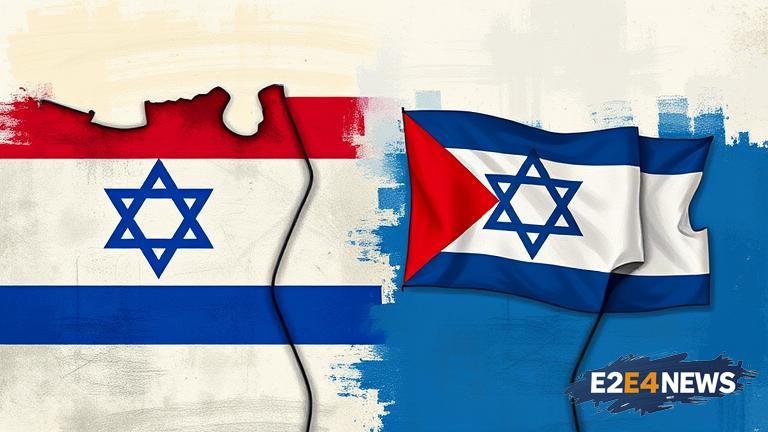The Israeli-Palestinian conflict has been a longstanding and complex issue, with both sides having competing claims and demands. Australian Foreign Minister Penny Wong has weighed in on the matter, emphasizing the importance of a two-state solution. According to Wong, without a clear pathway towards this goal, there may soon be no Palestine left to recognize. This warning comes as tensions between Israel and Palestine continue to escalate, with ongoing disputes over territory, settlements, and access to resources. The two-state solution, which would see the establishment of an independent Palestinian state alongside the state of Israel, has long been considered the most viable option for a peaceful resolution. However, with the passage of time, the prospects for such an outcome appear to be dwindling. The Israeli government has been accused of undermining the possibility of a two-state solution through its continued expansion of settlements in the West Bank and East Jerusalem. These settlements are considered illegal under international law and are seen as a major obstacle to the establishment of a Palestinian state. Meanwhile, the Palestinian leadership has been criticized for its failure to present a unified front in negotiations with Israel. The division between the Palestinian Authority, which governs the West Bank, and Hamas, which controls the Gaza Strip, has hindered the ability of the Palestinian people to present a coherent and effective negotiating position. Despite these challenges, Wong remains committed to the pursuit of a two-state solution, recognizing that it is the only viable option for a lasting peace. She has called on both sides to return to the negotiating table and to work towards a mutually acceptable agreement. The international community has a critical role to play in supporting this process, through the provision of diplomatic and economic support. The United States, in particular, has been accused of undermining the prospects for a two-state solution through its recognition of Jerusalem as Israel’s capital and its relocation of the US embassy to the city. This move was widely condemned by the international community, which sees Jerusalem as a disputed territory that should be resolved through negotiations. The European Union has also been critical of Israel’s settlement expansion, and has called for a freeze on construction in the West Bank and East Jerusalem. As the situation on the ground continues to deteriorate, the need for a two-state solution becomes increasingly urgent. The alternative, a one-state solution in which Israel would absorb the Palestinian territories, is seen as unacceptable by the international community, as it would likely result in the displacement and disenfranchisement of the Palestinian people. The Palestinian people have the right to self-determination and statehood, and it is the responsibility of the international community to support them in this pursuit. The Australian government has pledged to continue its support for the Palestinian people, through the provision of humanitarian aid and diplomatic support. However, without a clear pathway towards a two-state solution, the prospects for a peaceful resolution appear to be slipping away. The international community must come together to support the pursuit of a two-state solution, and to pressure both sides to return to the negotiating table. The consequences of failure are too great to contemplate, and it is the responsibility of world leaders to ensure that the rights of the Palestinian people are protected and respected. The clock is ticking, and it is imperative that action is taken now to prevent the loss of Palestine as a viable and independent state. The world cannot afford to wait, and it is the duty of leaders around the globe to take immediate action to support the pursuit of peace and justice in the Middle East.





